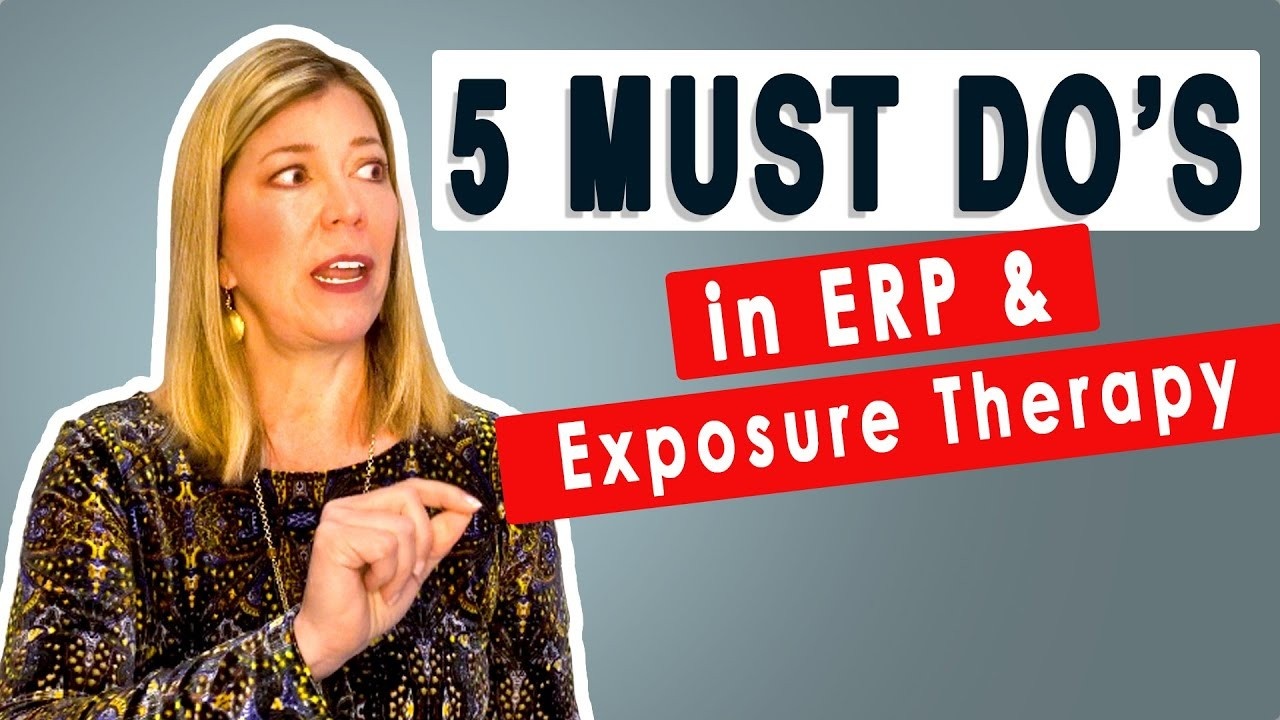
5 Must Do's in ERP for OCD & Anxiety Exposures
ERP (Exposure and Response Prevention) therapy is a highly effective treatment for individuals dealing with various forms of OCD, including contamination OCD. However, maintaining progress and ensuring the therapy's success can be challenging for some. In this blog post, we'll explore five essential strategies to maximize the effectiveness of ERP and exposure therapy, ensuring lasting results for clients
Five key principles for effective ERP therapy using the acronym S.A.V.V.Y.
1. Surprise Yourself (S):
One of the fundamental principles of successful ERP therapy is to constantly surprise your brain. Instead of repeating the same exposures, aim to challenge yourself with new and exciting situations. Research suggests that novel experiences are more effective in rewiring your brain. This shift from habituation models to inhibitory learning theory emphasizes the importance of unpredictability. Therefore, be open to trying exposures that push your boundaries and make your therapy more engaging
2. Anxiety Tolerance (A):
Unlike traditional approaches that aimed to reduce anxiety, contemporary ERP therapy focuses on building anxiety tolerance. Understand that it's perfectly okay for your anxiety to remain high during exposures. Inhibitory learning theory suggests that the key is not reducing anxiety but learning to manage and tolerate it. This shift in perspective can free you from the pressure to lower anxiety levels and instead focus on building your confidence in handling it.
3. Violating Expectations (V):
ERP therapy often involves confronting situations or thoughts that trigger intense fear or discomfort. To maximize the effectiveness of your therapy, embrace the idea of violating your expectations. When you expose yourself to a feared situation and realize you can endure it without giving in to compulsions or avoidance, it creates a significant mismatch between your expectations and reality. This mismatch is where profound learning occurs, making ERP therapy more successful.
4. Varying (V):
Variety is key in ERP therapy. To ensure you're getting the most out of your exposure exercises, aim to vary as many aspects as possible. This includes changing the context, environment, and triggers of your exposures. For instance, if you're working on contamination OCD, expose yourself to different scenarios, such as cleaning the entire house with various levels of dirtiness or combining it with exposure to distressing thoughts. The more you vary your exposures, the more effective your therapy will be.
5. Tracking (Y):
Lastly, actively track your ERP experiences. Before each exposure, take note of your emotions and any hesitations or worries. Afterward, assess your performance and your feelings about it. What did you learn during the exposure? Reflecting on these aspects can help consolidate your learning and improve the outcome of each exposure. This self-awareness and reflection are crucial for long-term progress in ERP therapy.

Are you struggling with OCD or Pure O? Do obsessive thoughts, rituals, and compulsions take over your life? Has it been hard to find a specialist to help you?
If you want to get your life back from OCD or Pure O,
this course is for you.
Effective ERP and exposure therapy can be a life-changing experience for individuals struggling with anxiety disorders like OCD. By following the S.A.V.V.Y. approach - Surprising yourself, building Anxiety tolerance, Violating expectations, Varying your exposures, and Tracking your progress - you can significantly enhance the effectiveness of your therapy. Remember that therapy is not just about managing symptoms but about rewiring your brain and building resilience. So, embrace these strategies, stay committed to your therapy, and pave the way for lasting positive change in your life.
Let's Keep in Touch
Subscribe to My Newsletter
We hate SPAM. We will never sell your information, for any reason.







